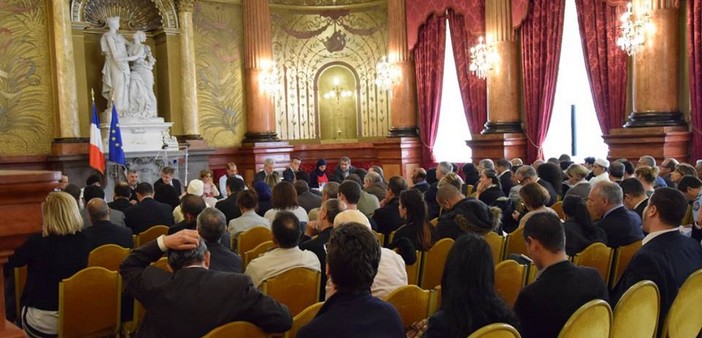No need to bury your head in the sand like an ostrich: there is a true and serious problem surrounding Islam, as a religion, and Islamism, which is a deviation of it.
But, in these times of hyper-communication, truths are not always facts, but the perception each person has, creating thus their convictions. So, those who are not like us become enemies, guilty of all the ills.
Let’s be clear: we must condemn without indulgence certain individuals who have committed crimes in the name of a religious struggle that only fanatics have declared in the name of Allah.
Yet it remains true that a diffuse feeling of Islamophobia has spread and causes a rift in social cohesion and communal life.
For many more than we imagine, Islam is the origin and the ideal culprit. And therefore, every Muslim is a potential responsible party.
To face this drift, we must constantly call for the eradication of Islamophobic speeches/behaviors/acts that unfortunately litter the daily life of this community, which belongs to the national community in the same way as any other religious or professional body, despite those dangerous arsonists who maintain doubt or explain the opposite for their personal and political interests.
No, Islamophobia is structural, systemic, and maintained. It is not a business to skillfully exploit; it is a cancer to fight.
After the tragic events of last January, Interior Minister Mr. Cazeneuve wants to restart and strengthen the dialogue between public authorities and Muslims in France.
He is therefore creating the so-called “Dialogue” Instance of Islam in France. It will be convened around the Prime Minister, Manuel Valls, by June 17.
It will gather the members of the CFCM and the representatives of the major mosques (which, with few exceptions, are all funded by foreign entities). It will also include civil society representatives, imams, and intellectuals.
The issues regarding Islam will be on the agenda of the instance. Among them are the training of imams, the prevention of anti-Muslim acts (i.e., Islamophobia), the radicalization phenomena among some youth, the organization and protection of places of worship, religious education, chaplaincies, and more.
The prefects were asked to organize consultations with representatives of French Muslims in the departments in preparation for the national instance.
This Saturday, the Prefectural Palace transformed into a forum and nearly a hundred people, religious figures, and members of the associative and socio-professional world, responded to Prefect Colrat’s invitation and participated in discussion workshops that covered important themes, such as the slaughtering of meat following Halal principles, Islamophobia, the teaching of French and French history, the discrimination of Muslim women, the training of imams, the principles and values of the Republic, and so on.
This dialogue, which had begun informally as early as January, was highly appreciated by the participants.
To better facilitate future relationships, a contact group comprising representatives of the most important religious associations was formalized.
It includes Boubekew Bekri, Vice-President of the Regional Council of the Muslim Faith and Rector of the Al Foryane Mosque; Mohamed Djadi, President of the Federation of Independent Mosques of the Alpes-Maritimes; Otmane Aissaoui, Imam and Rector of the Errahna Mosque, joined by Abderrazak Fetnan, representative of the associative world and director of Alpes-Maritimes Diversity.
Without claiming victory, it is immediately clear that dialogue is the right way to defuse tensions, address the “real” problems with pragmatism and seriousness, and learn to understand others in their diversity.
And, as a common denominator, affirm the intangibility of the values of the Republic, which are the cement of the nation, national unity, and the well-being of a community.
As the saying goes: give to Caesar what belongs to Caesar and to God what is God’s!
This simply means that citizenship and religious faith can very well coexist within each of us.


